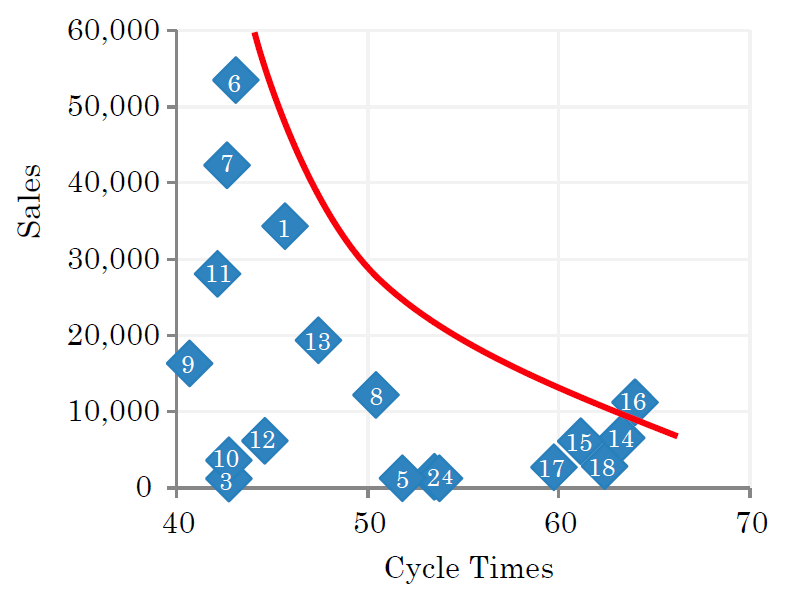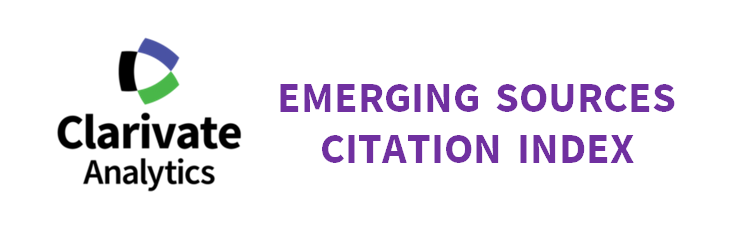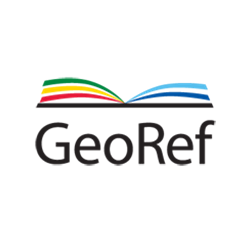Análisis Envolvente de Datos (DEA) para medir el desempeño relativo basado en indicadores de una red de abastecimiento con Logística Inversa
DOI:
https://doi.org/10.17981/ingecuc.14.2.2018.13Palabras clave:
Análisis Envolvente de Datos, Eficiencia relativa, Logística Inversa, Empaques Retornables, AlmacenamientoResumen
Introducción: El análisis envolvente de datos (DEA), se usa para medir el desempeño relativo de una serie de centros de distribución (DCs), utilizando indicadores clave basados en logística inversa para una empresa que produce suministros eléctricos y electrónicos en Colombia.
Objetivo: Medir el rendimiento relativo de los centros de distribución en función de indicadores clave (KPI) de una red de abastecimiento con logística inversa.
Metodología: Se aplica un modelo DEA a través de 5 pasos: Selección de KPIs; Recopilación de datos para los 18 DCs en la red de distribución; Se construye y ejecuta el modelo DEA; Identificar los DCs que serán el foco de la mejora; Analizar los DCs que restringen o disminuyen el rendimiento total del sistema.
Resultados: Inicialmente se definen KPI, a partir de los datos recolectados y se presentan los KPI para cada DCs. Se ejecuta el modelo DEA y se determinan las eficiencias relativas para cada DCs. Posteriormente, se realiza un análisis de la frontera y se analizan los DCs que limitan o reducen el rendimiento del sistema en busca de opciones para mejorar el sistema.
Conclusiones: La logística inversa, trae numerosas ventajas para las empresas. El análisis de los indicadores permite a los gerentes de logística tomar decisiones relevantes para mejorar el desempeño del sistema. El modelo DEA identifica a los DCs que presentan rendimientos relativamente superiores e inferiores; lo cual facilita la toma de decisiones informadas para cambiar, aumentar o disminuir los recursos y las actividades, o aplicar las mejores prácticas que optimicen el rendimiento de la red.
Descargas
Citas
S. Agrawal, R. Singh and Q. Murtaza, “A literature review and perspectives in reverse logistics”, Resources, Conservation and Recycling, vol. 97, pp. 76-92, 2015. https://doi.org/10.1016/j.resconrec.2015.02.009
N. Bahiraei, H. Panjehfouladgaran and R. Yusuff, “Ranking of critical success factors in reverse logistics by TOPSIS”, Presented at IEOM International Conference, pp. 1-5, 2015. http://dx.doi.org/10.1109/IEOM.2015.7093787
E. Bayraktar, E. Tatoglu and S. Zaim, “Measuring the relative efficiency of quality management practices in Turkish public and private universities”, Journal of the Operational Research Society, vol. 64, no. 12, pp. 1810- 1830, 2013. https://doi.org/10.1057/jors.2013.2
S. Çakir, S. Perçin and H. Min, “Evaluating the comparative efficiency of the postal services in OECD countries using context-dependent and measure-specific data envelopment analysis” Benchmarking: An International Journal, vol. 22, no. 5, pp. 839-856, 2015. https://doi.org/10.1108/BIJ-10-2013-0098
Q.Q. Chang and H.Z. Zheng, “An effective strategy for non-defective reverse logistics”. Presented at ICIA International Conference, pp. 1273-1277, 2014. https://doi.org/10.1109/ICInfA.2014.6932844
W. Cook and J. Zhu, Data Envelopment Analysis: A Handbook on the Modelling of Internal Structures and Networks. New York, USA: Springer, 2014. https://doi.org/10.1007/978-1-4899-8068-7
Council of Supply Chain Management Professionals, CSCMP Glossary [Online], 2013. Available: http://cscmp.org/
K. Das, “Integrating reverse logistics into the strategic planning of a supply chain”, International Journal of Production Research, vol. 50, no. 5, pp. 1438–1456, 2012. https://doi.org/10.1080/00207543.2011.571944
A. Davoodi, H. Rezai and R. Fallahnejad, “Congestion analysis in DEA inputs under weight restrictions”, Journal of the Operational Research Society, vol. 63, no. 8, pp. 1089-1097, 2012. https://doi.org/10.1057/jors.2011.104
J. Ding, W. Dong, G. Bi and L. Liang, “A decision model for supplier selection in the presence of dual-role factors”, Journal of the Operational Research Society, vol. 66, no. 5, pp. 737-746, 2015. https://doi.org/10.1057/jors.2014.53
R. Dyson and E. Shale, “Data Envelopment Analysis, Operational Research and Uncertainty, Journal of the Operational Research Society, vol. 61, no. 1, pp. 25-34, 2010. http://www.jstor.org/stable/40540225
A. Faed, O.K. Hussain and E. Chang, “A methodology to map customer complaints and measure customer satisfaction and loyalty”, Service Oriented Computing and Applications, vol. 8, no. 1, pp. 33-53, 2014. https://doi.org/10.1007/s11761-013-0142-6
M. J. Farrell, “The measurement of productive efficiency”. Journal of the Royal Statistical Society. Series A (General), vol. 120, no. 3, pp. 253-290, 1957. https://doi.org/10.2307/2343100
P. Guarnieri, V. Sobreiro, M. Nagano and A. Marques, “The challenge of selecting and evaluating third-party reverse logistics providers in a multicriteria perspective: A Brazilian case”, Journal of Cleaner Production, vol. 96, pp. 209-219, 2015. https://doi.org/10.1016/j.jclepro.2014.05.040
S. Haghighi, S. Torabi and R. Ghasemi, “An integrated approach for performance evaluation in sustainable supply chain networks (with a case study)” Journal of Cleaner Production, vol. 137, pp. 579-597, 2016. http://dx.doi.org/10.1016/j.jclepro.2016.07.119
J. R. Huscroft, B. T. Hazen, D. J. Hall and J. B. Hanna, Task-technology fit for reverse logistics performance. International Journal of Logistics Management, 24(2), 230-246, 2013. https://doi.org/10.1108/IJLM-02-2012-0011
M. Izadikhah and R. F. Saen, “A new preference voting method for sustainable location planning using geographic information system and data envelopment analysis”, Journal of Cleaner Production, vol. 137, pp. 1347-1367, 2016. https://doi.org/10.1016/j.jclepro.2016.08.021
Y. Jiang and H. Zheng, “A construction method of Enterprise reverse logistics based on bilateral resource integration”, Presented at ICIA International Conference, pp. 1268-1272, 2014. https://doi.org/10.1109/ICInfA.2014.6932843
C. Kao, “Efficiency decomposition and aggregation in network data envelopment analysis”, European Journal of Operational Research, vol. 255, no. 3, pp. 778-786, 2016. https://doi.org/10.1016/j.ejor.2016.05.019
V. Lall, R. Lumb and A. Moreno, “Selection and Prioritization of Projects: A Data Envelopment Analysis (DEA) approach” Indian Journal of Economics and Business, vol. 11, no. 2, pp. 359-372, 2012.
K. H. Lau, “Distribution network rationalisation through bench-marking with DEA”, Benchmarking: An International Journal, vol. 19, no. 6, pp. 668-689, 2012. https://doi.org/10.1108/14635771211284260
K. Lieckens and N. Vandaele, “Multi-level reverse logistics network design under uncertainty”. International Journal of Production Research, vol. 50, no. 1, pp. 23-40, 2012. https://doi.org/10.1080/00207543.2011.571442
S. Lim, “Context-dependent data envelopment analysis with cross-efficiency evaluation”. Journal of the Operational Research Society, vol. 63, no. 1, pp. 38-46, 2012. https://doi.org/10.1057/jors.2011.29
J. S. Liu and W. M. Lu, “Network-based method for ranking of efficient units in two-stage DEA models”, Journal of the Operational Research Society, vol. 63, no. 8, pp. 1153-1164, 2012. https://doi.org/10.1057/jors.2011.132
S. M. Mirhedayatian, M. Azadi and R. F. Saen, “A novel network data envelopment analysis model for evaluating green supply chain management”, International Journal of Production Economics, vol. 147(B). pp. 544-554, 2014. https://doi.org/10.1016/j.ijpe.2013.02.009
A. Mostafaee, “An equitable method for allocating fixed costs by using data envelopment analysis”, Journal of the Operational Research Society, vol. 64, no. 3, pp. 326- 335. https://doi.org/10.1057/jors.2012.56
A. Shabani and R.F. Saen, “Developing a novel data envelopment analysis model to determine prospective benchmarks of green supply chain in the presence of dual-role factor”, Benchmarking: An International Journal, vol. 22, no. 4, pp. 711-730, 2015. https://doi.org/10.1108/BIJ-12-2012-0087
X. Shi, L. Li, L. Yang, Z. Li and J. Choi, “Information flow in reverse logistics: an industrial information integration study”, Information Technology and Management, vol. 13, no. 4, pp. 217-232, 2012. https://doi.org/10.1007/s10799-012-0116-y
B. Şimşek and F. Tüysüz, “An application of Network Data Envelopment Analysis with fuzzy data for the performance evaluation in cargo sector”, Journal of Enterprise Information Management, (just-accepted), pp. 00-00, 2018. https://doi.org/10.1108/JEIM-01-2017-0026
R. Skapa and A. Klapalová, “Reverse logistics in Czech companies: increasing interest in performance measurement”, Management Research Review, vol. 35, no. 8, pp. 676- 692, 2012. https://doi.org/10.1108/01409171211247686
C. C. Tu, S. H. Chang, C. J. Tu and A. C. Lee, “Study of the performance of reverse logistics for supply chain management”, Presented at IEEM International Conference, pp. 2323-2327, 2010. https://doi.org/10.1109/IEEM.2010.5674146
C. Ya-Ping, “Cost and Benefit Analysis of Reverse Logistics”, Presented at International Conference on BCGIN, pp. 75-77, 2012. https://doi.org/10.1109/BCGIN.2012.26
M. Zerafat, A. Emrouznejad and A. Mustafa, “Fuzzy data envelopment analysis: A discrete approach”, Expert Systems with Applications, vol. 39, no. 3, pp. 2263-2269, 2012. https://doi.org/10.1016/j.eswa.2011.07.118
Y. Zou, “Study on logistics operation cost control based on the DEA model”, Presented at MSIE International Conference, pp. 1025-1028, 2011. https://doi.org/10.1109/MSIE.2011.5707590

Descargas
Publicado
Cómo citar
Número
Sección
Licencia
Los artículos publicados son de exclusiva responsabilidad de sus autores y no reflejan necesariamente las opiniones del comité editorial.
La Revista INGE CUC respeta los derechos morales de sus autores, los cuales ceden al comité editorial los derechos patrimoniales del material publicado. A su vez, los autores informan que el presente trabajo es inédito y no ha sido publicado anteriormente.
Todos los artículos están bajo una Licencia Creative Commons Atribución-NoComercial-SinDerivadas 4.0 Internacional.


 English
English
 Español (España)
Español (España)























